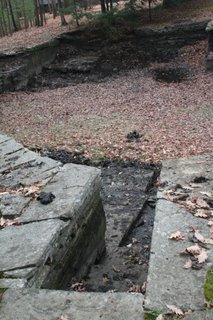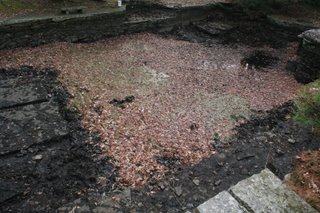1) How do you look at your original insight, inspiration, idea for your writing? Is it something that you control, or is it something with a life of its own? (I'm talking about the main idea of a book, not necessarily the characters or anything else)
You control the main idea -- the original insight. And while it comes from somewhere, you can generally trace where it comes from. The novel I've just finished, "Nick and Jake," comes from many conversations with my brother (we co-wrote it) over the years about the idea of having the main characters of The Great Gatsby and The Sun Also Rises meet, 25 years later, after WWII. We were prodded to start writing it post 9/11, post- George Bush's destruction of the worldwide concern and good will for America. We started thinking about how that happened post WWII, in the 50s McCarthy-CIA era, and realized our Nick and Jake story would be a perfect vehicle.
Now we're getting ready to start work on another book we've wanted to write for years, and the inspiration for this is our heritage -- our parents and their friends, the people we had for role models growing up. It'll be a historical novel about the Woodstock artists' colony in the 20s and 30s, and a theme involving two artists whom we respected and admired, who came to be rivals.
2) How do you develop your characters, scenarios, or the main ideas for your writing? How do you test out different ideas for characters, for example?
That really comes from the writing. This is not a usual experience, but if you're looking for odd stories from the writing life. My brother Jon and I live on opposite sides of the continent, and we decided to try and collaborate by email and instant message. That led to the choice of an epistolary novel, although we might have chosen it anyway. So our character development -- of the main characters, and the supporting characters -- came, to a considerable extent, by daring each other -- "let's see what you can do with this!!!" It proved to be a wonderful technique.
And last of all, the most important question for my purposes (and I think the most interesting one of all):
3) So, when its all said and done, do you feel that you lose control of your characters in a way? Does your perception of them change over time? Do you find them doing things you didn't forsee or plan? Do they take the book in a different direction than you intended? Why do you think this is, if at all?
I just read something terrific in an interview with a woman who choreographs fight scenes for stage productions. She was talking about choreographing a duel between two topless ladies.
The interviewer asked: Did you start stripping from the beginning, or work up to it gradually?
Choreographer: We choreographed all the fights first, concentrating on what you always concentrate on when creating a fight --
What story is being told?
How would these characters fight in these circumstances?
What choices do they make to accomplish their goals?
What do they do when thwarted?
So when we began to rehearse with the shirts off, we found that no changes were necessary.
You probably can't use the topless part of it in your paper, but the rest is incredible -- it's exactly what we need to do in writing a story. And the part about the choices characters make to accomplish their goals. and what they do when thwarted -- well, you can see exactly how that applies to stage fighting, but it applies to creating characters too. And you really don't know before you start -- have to discover in the writing -- the choices -- emotional, psychological, strategic, well-chosen, poorly chosen -- that your characters will come up with until you put them into a situation. And you certainly don't know what they're going to when thwarted until you put the obstacles in their paths.
One more story -- I once had to write a novel very very fast, against a deadline. At a certain point in the novel, the heroine has to plead with her old lover, now the leader of a revolution, for the life of her new lover. I knew, because I'd outlined the whole story, that she succeeds. But when I got to the scene, I couldn't figure out how. What could she possibly say? I didn't have time to wrestle with it, because of the deadline. But I was stuck, and I couldn't afford to be stuck. I decided to go ahead and write the next chapter, and come back to this, but I couldn't do it. Too linear. So
I came up with a solution out of desperation -- I never would have done this in my right mind. I decided to fool myself. Write "Chapter 14," then write seven or eight pages of total gibberish, then write "Chapter 15." So I did. And I got to the end of the book. And when I came back to actually write Chapter 14, I found to my amazement some phrases that contained psychological insights that would work for the confrontation. Who knows where they came from?
The interviewer was my friend Mary Shen Barnidge, for her newsletter about stage fighting, Moulinet. The interviewee was Dawn "Sam" Alden of Babes With Blades.

